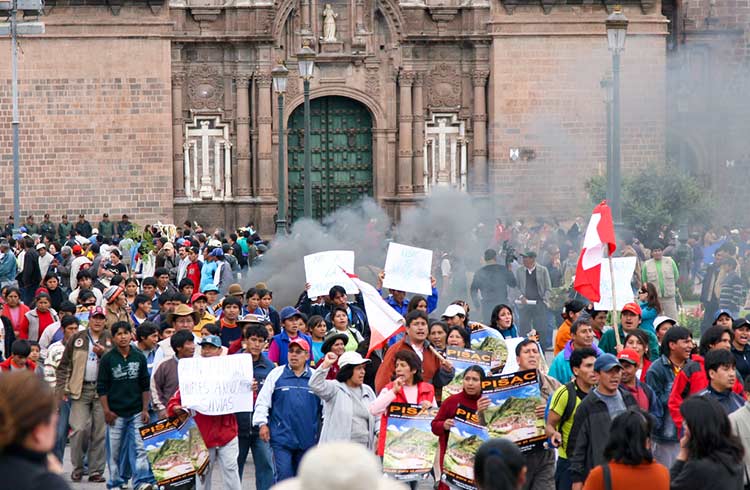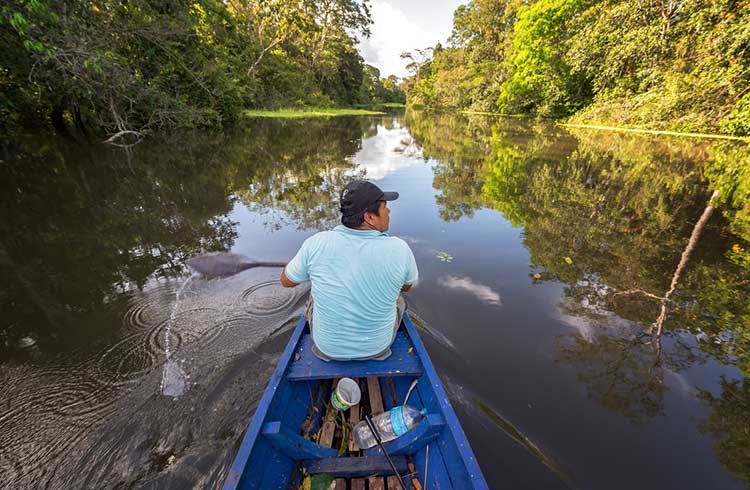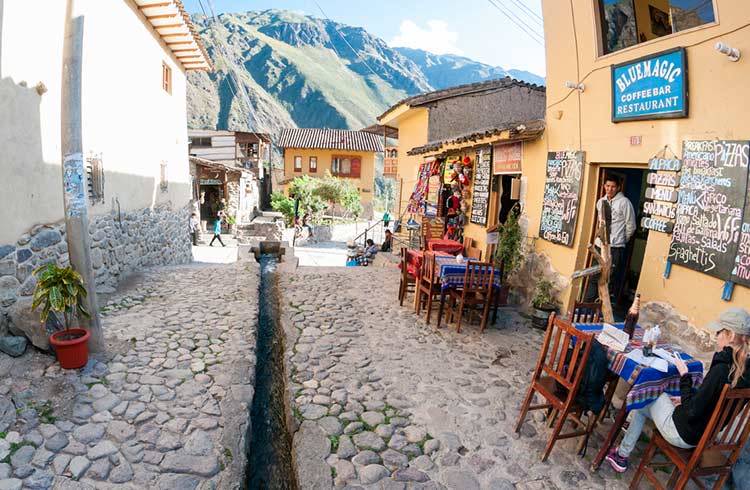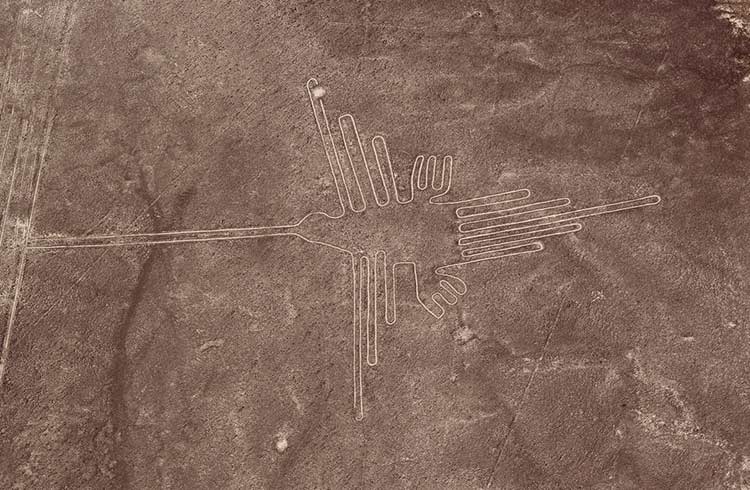Protests in Peru: A Traveler's Guide to Staying Safe
Peru has a tumultuous and violent political history. Throughout the 20th century, the country suffered terribly through military dictatorships, numerous coups, terrorism, corruption, human rights abuses, and hyperinflation.
 Photo © iStock/Onfokus
Photo © iStock/Onfokus
Things have settled down considerably, but Peru is still prone to civil unrest and large scale protests.
While travelers are rarely a target, you may find yourself in the wrong place at the wrong time.
Here are a few tips on avoiding trouble, and what to do if it finds you.
- Protests in Peru
- Accidental tourist target
- Don't get involved
- What to do if you get stuck in a protest in Peru
Protests in Peru
Peru is experiencing a period of unprecedented prosperity, mainly due to a boom in natural resources but also in part to the growing tourism industry. Yet more than 50% of the population still lives below the poverty line, with a huge rift between rich and poor. This contributes to the country's rampant petty crime but also breeds political discontent in the marginalised masses.
It is Peru's poor rural communities that are most affected by the scramble for resources yet very little of the profit filters back down. Foreign companies run the mining and drilling operations and most of the revenue is exported. What wealth remains is distributed by a small group of powerful people based in the capital.
Peru's history of autocratic, centralised government has shaped a heavy-handed system run almost entirely out of Lima, with very little local representation. So protesting is often the only way for these communities to voice their concerns.
Although most protests begin as peaceful demonstrations or blockades, unfortunately the clash of angry workers and authoritarian enforcers often ends violently.
Mining was the cause of conflict when demonstrators seized the city of Puno, on Lake Titicaca in May 2011, blockading the Bolivian border and stranding hundreds of tourists. Indigenous protesters ended a 43 day protest on October 31, 2017 after signing a negotiated agreement with government regarding the impacts of oil production in the area such as pollution and the long term effects of production.
Accidental tourist target
Social unrest usually occurs in remote parts of the country however roadblocks on arterial highways, meant to disrupt mining and drilling operations, often leave tourists high and dry.
Sometimes, as in the case of the Puno protests and some 2008 demonstrations over development at Machu Picchu, tourism infrastructure is directly targeted as a way to garner attention and attack one of the government's primary sources of income.
Anger and violence aren't often directed at tourists themselves but if you find yourself caught up in demonstrations you shouldn't push your luck.
- Because the protests normally build up slowly you should either have time to leave or adequate warning to avoid an area before things get out of hand.
- Keep an eye on news reports and be mindful of travel warnings. If you do find your plans have been disrupted by social disturbance don't try and wait it out. Disputes often take weeks or months to resolve and things will probably get worse before they get better.
- You might have to bite the bullet and backtrack a little or pay for some extra flights but in the end that's better than wasting time twiddling your thumbs or worse, putting your safety at risk.
- Let family or friends know where you are, what the situation is and arrange a time to check in again. This way if something does happen someone will be able to pinpoint your last known location and any assistance effort will be much swifter.
- Contacting your Embassy to let them know you are in a potentially dangerous situation is also good idea. Staff will also be able to give you updates and advice on keeping yourself out of trouble.
Don't get involved
If you get stranded for a while you might feel like going to see what all the fuss is about but these are NOT street parades. If things do eventually boil over it's going to get ugly quickly.
If you feel the urge to stickybeak just remember your insurer is unlikely to pay out any claims if you knowingly put yourself in danger. So if you do get injured you'll be stuck paying all your medical bills, transport costs and won't get any help replacing your broken camera or stolen passport.
Keep well away from the protests and stay inside.
If you do unintentionally find yourself in a hot spot legging it is usually your best bet, although sprinting through the streets isn't a great idea. Move quickly but calmly and try to avoid attracting attention. The protests tend to be quite focused rather than widespread madness so if you can put a few blocks between yourself and the action you should be out of harm's way.
Don't assume the police are on your side. If you are in need of help, make yourself known and approach cautiously. They have a reputation for shooting first and asking questions later in these circumstances.
Make sure to carry a passport or some form of identification and clearly proclaim yourself as a tourist.
What to do if you get stuck in a protest in Peru
If you are detained do your best to cooperate. The police will be worked up and you don't want to do anything to set them off. If you feel you're the victim of corruption or unfair treatment you can take it up with your embassy or the Servicio de Protection al Turista (INDECOPI), which has a 24-hour hotline (0-800-42579) and staff who speak both English and Spanish.
Having a complaint or report on record will be helpful if you need to claim any loss. This also applies to any documents the police give you, so it is a good idea to make copies.
Don't assume the protesters will welcome you with open arms either. While tourists are rarely the targets of a mob's fire, foreign mining companies often are and a foreign-looking tourist could become a conduit for their rage.
Don't draw attention to yourself and try to make a stealthy escape. Head for the sides of the mob if you can. Trying to outrun the crowd could leave you caught in No Man's Land between the protesters and police. Not somewhere you want to be.
Despite their intensity and regularity, these protests usually occur well off the tourist trail. If you're cautious and keep well informed you shouldn't have any trouble staying out of it all.
Related articles
Simple and flexible travel insurance
You can buy at home or while traveling, and claim online from anywhere in the world. With 150+ adventure activities covered and 24/7 emergency assistance.
Get a quote


No Comments